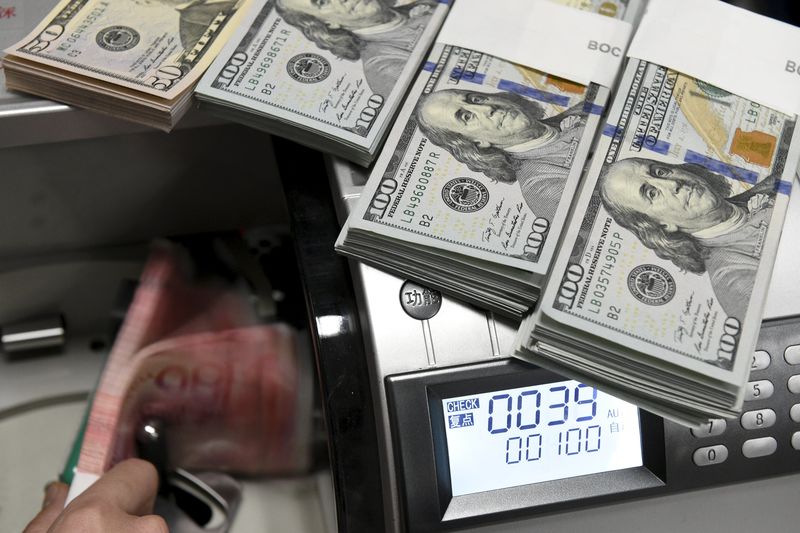By Geoffrey Smith
Investing.com -- The dollar was higher in early trade in Europe on Monday, riding another wave of risk aversion as fresh economic data testified to a sharp economic slowdown in China.
By 3:10 AM ET (0710 GMT), the dollar index was up 0.4% at 103.41, within half a percent of the 20-year high that it posted last week.
The latest leg of the rally reflects on the one hand anticipation of a half-point rise in U.S. official interest rates on Wednesday at the Federal Reserve’s regular policy meeting, which drove U.S. bond yields sharply higher on Friday, making the dollar more attractive. The Fed is also expected by some to announce it will run down its bond holdings faster than previously signaled.
On the other hand, the news also reflects dismay at China’s official manufacturing purchasing manufacturing index, which fell to 47.4 in April, its lowest in two years, due to COVID-19 lockdowns, notably in Shanghai.
The “decline in production and demand” has deepened, the authorities said in their statement.
The news drove the dollar another 0.5% higher against the offshore yuan to 6.6730, as a brief relief rally on Friday after promises of more policy support was quickly reversed.
The euro also came under pressure from developments on the bond markets, with expectations for Fed hikes contrasting sharply with messaging from the European Central Bank, whose top officials still appear reluctant to commit to raising interest rates in July. Both chief economist Philip Lane and Vice President Luis de Guindos left plenty of ambiguity in statements on the subject in their latest comments.
The euro wasn’t helped by surprisingly weak German retail sales data for March, the first full month’s data to reflect the impact of the war in Ukraine on consumer confidence in the region. Retail sales fell 0.1% on the month and 2.7% on the year.
The euro was also suffering from jitters ahead of an emergency meeting of EU energy ministers later Monday, which will discuss a phased embargo on Russian oil to punish the Kremlin for its invasion of Ukraine. The impact is likely to make sourcing energy supplies more expensive even in a base case scenario, but analyst fear it may also trigger a unilateral cut-off of natural gas supplies to Europe, which would be much harder to substitute in the near term.
Trade in Europe was thinned out by the closure of the region’s biggest financial center, London, and a number of other markets for a public holiday. Sterling was flat against the dollar at $1.2570.
